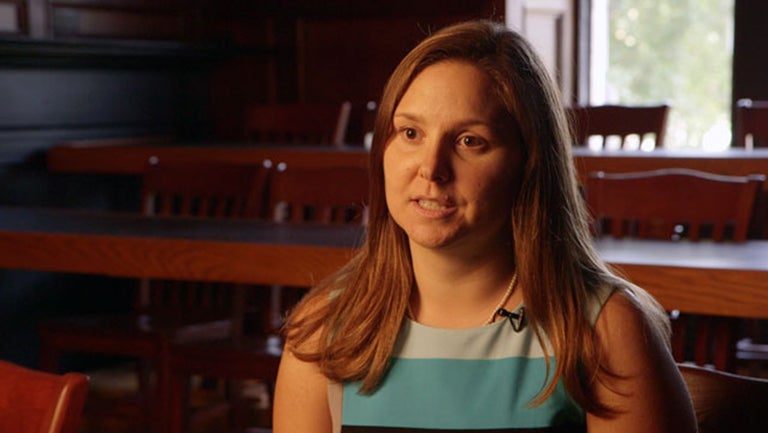Title: Five Things to Know About the U.N. Climate Talks
Joanna Lewis, associate professor at the School of Foreign Service, explains five things we should all know about the U.N. climate change talks beginning today in Paris.

Joanna Lewis is an associate professor of Science, Technology and International Affairs (STIA) at the School of Foreign Service who will speak in Parisalongside events of the 2015 United Nations Climate Change Conference, also known as COP 21, which begins today.
Lewis’ research focuses on energy, environment and innovation in China, including renewable energy industry development and climate change policy. Her recent book, Green Innovation in China: China’s Wind Power Industry and the Global Transition to a Low-Carbon Economy, was awarded the 2014 Harold and Margaret Sprout Award by the International Studies Association.
Read her recent paper on China’s non-fossil energy target and how the country’s methodology for calculating the target is neither transparently reported nor widely understood, in the prestigious journal Science.
Below, the professor lists Five Things We Should Know About the Climate Paris Talks. For more information about the discussions involving Lewis and Georgetown Climate Center Executive Director Vicki Arroyo, visit the article entitled “Faculty Members to Speak in Paris Alongside Climate Change Talks.”
1.What exactly is “COP 21”?
“COP” is “Conference of the Parties” to the 1992 United Nations Framework Convention on Climate Change. The meeting in Paris is the 21st “COP,”and it’s also the 11th Meeting of the Parties to the Kyoto Protocol. While the Kyoto Protocol was the first climate agreement that included legally binding commitments for countries to reduce greenhouse gas emissions, it only included targets for the wealthier countries. It was never ratified by the United States, and Japan, Canada and Russia have since withdrawn from the agreement. But ever since COP 15 in Copenhagen, countries have been working towards an even more inclusive international agreement, which is supposed to be finalized in Paris.
2. Why is COP 21 so important?
COP 21 is the most important climate negotiation since COP 15 in Copenhagen. While COP 15 was widely reported as a failure since it didn’t produce a new international treaty, it was actually quite successful in that it was the first time many developing countries pledged targets to reduce their greenhouse gas emissions. Since Copenhagen, both developed and developing countries have been working to negotiate a new agreement. As of Nov.25 of this year,150 “INDCs” have been submitted by countries ranging from Afghanistan to Zimbabwe and cover the post-2020 period where the Copenhagen agreements left off.
3. What is an INDC?
An “INDC” is an “Intended Nationally Determined Contribution.” In preparation for COP 21, countries have publically outlined what climate actions they intend to take in the context of a new climate agreement. The INDCs include a range of actions, such as greenhouse gas reduction targets, renewable energy targetsand deforestation targets, among other things. Countries representing 90 percentof global emissions have agreed to take on some form of action to reduce their greenhouse gas emission, which is pretty impressive.
4. What will a successful outcome in Paris look like?
The agreement in Paris will not solve the climate change problem, but it needs to be a good first step. The current INDCs, while an excellent start, are not ambitious enough. A strong agreement will allow for countries to gradually increase their targets going forward. The agreement needs to provide flexibility to get broad participation, but also have sufficient accountability to make sure countries follow through on their pledges. A key way to ensure we can understand each country’s pledges and track their progress is to have clear rules for how targets are reported so they can be easily understood by other countries. China, for example, has pledged an ambitious non-fossil energy target as part of its INDC, but its methodology for calculating this target is calculated using a methodology that is not transparently reported and not widely understood. This is the topic of a paper I recently wrote that was just published by the journal Science.
5. What will Georgetown be doing at COP 21?
The Georgetown delegation includes me and Vicki Arroyo, executive director ofthe Georgetown Climate Center at Georgetown Law. We are bringing two Georgetown undergraduates, Norah Berk (SFS ’16) and Alexandra Donovan (SFS ’17), as well as several state government officials who will participate in some of our events. We will be speaking in events alongside the official negotiations, and tracking the negotiations closely. For those who will be in Paris and want to attend our events, click here.